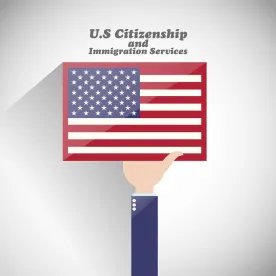Public Charge Rule
The “Public Charge Rule” implemented by the Department of Homeland Security (“DHS”) on February 24, 2020 mandates that certain individuals applying for U.S. immigration status are generally inadmissible into the U.S. if they are found likely to become a public charge at any time. Individuals inside or outside the U.S. who seek to either obtain Lawful Permanent Resident status (apply for immigrant visas and “green cards”) or to extend or change nonimmigrant status (temporary visas) must now demonstrate that they have not received public benefits, or have received limited public benefits, with some exceptions. This requires individuals to provide with their applications for immigration status additional detailed information regarding finances (such as income, assets, credit scores, bank accounts, taxes, debts, etc.). Public benefits received prior to February 24, 2020 will not weigh heavily against these individuals. Immigration case impact and processing trends are still being determined given the fairly recent implementation of the Public Charge Rule.
Available guidance notes that public benefits considered for a public charge determination include, but are not limited to, the following: any federal, state, local, or tribal cash assistance for income maintenance. Examples include Supplemental Security Income (SSI) and Cash Temporary Assistance for Needy Families (TANF), Supplemental Nutrition Assistance Program (SNAP), Section 8 Housing Assistance & Project-Based Rental Assistance, Public Housing; and Medicaid. In contrast, the following are not considered for a public charge determination: tax credits; unemployment benefits; disaster relief assistance; certain forms of nutritional support, including Special Supplemental Nutrition for Women Infants and Children (WIC) and school breakfast and lunch; and certain Medicaid benefits, including emergency medical care, school-based services and benefits, and Medicaid for individuals under 21 years of age.
As a reminder, many non-immigrants (temporary visa holders) are not eligible to receive public benefits. Eligibility for public benefits depends on immigration status, age, and other factors. Use of public benefits to which an individual is not entitled may have adverse immigration consequences beyond the public charge determination. All individuals should carefully review eligibility criteria prior to applying for and/or using public benefits.
COVID-19 Relief Measures
In response to COVID-19, the federal government has enacted broad economic relief policies. These measures include direct financial aid to families through tax credit rebates, expanded unemployment benefits and new relief programs as well as indirect aid through increased federal funding for businesses and healthcare providers. Generally, the use of disaster relief assistance will not impact a public charge determination for individuals seeking immigration benefits. However, the use of public benefits during COVID-19 can still be considered in the public charge analysis.
Healthcare Measures
Federal legislation passed in response to COVID-19 provides additional federal funding for COVID-related testing and treatment, including increased funding for Community Health Centers and for testing and treatment of uninsured and underinsured individuals. USCIS is encouraging anyone experiencing COVID-19 symptoms to seek medical treatment and/or preventative care. Seeking testing, prevention, or treatment of COVID-19 will not factor into a public charge determination for purposes of seeking an immigration benefit, even if the testing/prevention/treatment is federally funded. However, eligibility for Medicaid has not changed, and enrollment in Medicaid during COVID-19 may still be used as a factor for determining an immigration benefit under the Public Charge Rule.
Stimulus Bill Rebate Payments
The CARES Act authorized the federal government to issue one-time tax credit rebate payments to certain taxpaying individuals and households, including certain temporary nonimmigrants. Depending on income, eligible individuals can receive up to $1,200 while eligible households can receive up to $2,400. In addition, eligible individuals with children can receive $500 per dependent child under 17 years of age.
The rebate payments authorized by the CARES Act are considered tax credit payments, which will not factor into a public charge determination. However, note the following:
-
Eligibility for tax-credit rebate payments depends on filing 2018 and/or 2019 taxes and tax residency status and requires all recipients to possess a valid social security number with limited exceptions for certain military households and adopted dependent children. This means that many mixed-status families (families with individuals in different immigration statuses) may not be eligible for the stimulus check.
-
Receiving tax credit payments in error may lead to an individual or household owing taxes, which could be used in a public charge determination for purposes of seeking an immigration benefit. It is very important that any individual receiving a tax credit rebate check ensure that they are in fact eligible to receive it.
Food and Nutritional Assistance
The Families First Act authorizes states to provide supplemental SNAP benefits to SNAP households and creates a new program, Pandemic EBT ("P-EBT"), authorizing states to provide meal assistance to children who are out of school due to COVID-19 and who would otherwise receive free or reduced school lunches. P-EBT is considered disaster relief assistance and will not factor into a Public Charge determination. However, eligibility for SNAP has not changed and enrollment in SNAP may still be used as a factor for determining an immigration benefit under the Public Charge Rule.
Unemployment Benefits
When individuals become unemployed through no fault of their own, they may qualify for relief through unemployment benefits. Unemployment benefits pay out a portion of an individual’s prior income while the individual is unemployed, and are administered by states with oversight from the Department of Labor (DOL). The benefits program is funded through taxes paid by employers. Although the federal government has set a few eligibility requirements, states are largely able to determine their own individual eligibility criteria and benefit levels for basic unemployment benefits.
While eligibility requirements for unemployment benefits vary by state, generally someone must be considered “able and available to work” before s/he is eligible to collect unemployment benefits. Since many temporary nonimmigrant work visas (such as H-1Bs and L-1s) require employer sponsorship prior to employment authorization, most people with these types of visas are not considered to be able and available to work. Individuals with other types of work authorization, such as an unrestricted EAD (Employment Authorization Document), may be eligible for unemployment benefits.
The CARES Act expands on basic unemployment benefits through three programs: Pandemic Unemployment Compensation (PUC), Pandemic Emergency Unemployment Compensation (PEUC), and Pandemic Unemployment Assistance (PUA). These programs increase coverage and availability, but eligibility criteria are still determined by individual states. Some states have temporarily waived eligibility requirements due to COVID-19, including the able and available requirement. This waiver may expand the types of non-U.S. workers who qualify for unemployment benefits in those states. Additionally, some states have waived waiting periods and increased payments.
Unemployment benefits are considered earned benefits and will not factor into a public charge determination.
SBA Loans
COVID-19 relief packages provide funding for small businesses in the form of loans, interest relief for certain loans, and waivers of certain fees. Certain non-U.S. citizens who own or share ownership in qualifying businesses may apply for an SBA (Small Business Administration) loan.
SBA loans are unlikely to impact a public charge determination because generally disaster relief programs are not considered in the analysis. Also, an SBA loan is granted to a company rather than to an individual, while a public charge determination focuses on an individual
Given that this is a rapidly changing situation, please also refer to the following online resources, and be sure to review the “last updated” date:





 />i
/>i
